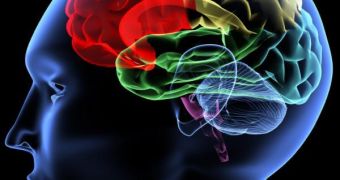In a new set of experiments, scientists have demonstrated that the human brain is very flexible and capable of switching from right- to left-brain behavior in a very short time frame.
This notion is rather complex, scientists say. For example, people who are right-handed tend to unconsciously associate right with good and left with bad. This is done instinctively, for reasons that researchers don't yet understand fully.
But the team behind the new work showed that a few minutes is all it takes for right-handers told to use their left hand instead to change their minds, and to associate left with good and right with bad.
These associations are of the same type that people make when they think of north as being up and south as being down. These are all conditionings that we formed while looking at maps.
The main implication of the new study is that the concepts of good and bad are inscribed in bodily experiences, which is something that has never been demonstrated before. According to PsychCentral, our understanding of these concepts may change with patterns of bodily experiences.
In previous studies, other scientists have demonstrated that even language is subjected to this neural bias. As most people are right-handed, it has become the norm to say that something looks, feels, sounds or tastes right. Nobody says their favorite songs sound left.
In the work psychologist Dr. Daniel Casasanto led, people were made to select between two concepts, objects or creatures on a computer screen. Right-handers were more likely to choose the object on their right, while the opposite was true for left-handers.
“People can act more fluently with their dominant hand, and come to unconsciously associate good things with their fluent side of space,” the expert says of the possible reasons behind this.
“People generally think their judgments are rational, and their concepts are stable. But if wearing a glove for a few minutes can reverse people’s usual judgments about what’s good and bad, perhaps the mind is more malleable than we thought,” the investigator adds.
The research paper detailing the findings, which is published in the latest online issue of the esteemed scientific journal Psychological Science, proves that there may be more methods of influencing the human brain that previously thought possible.

 14 DAY TRIAL //
14 DAY TRIAL //